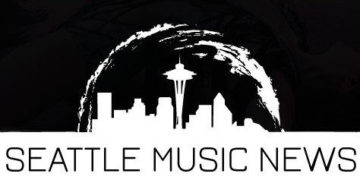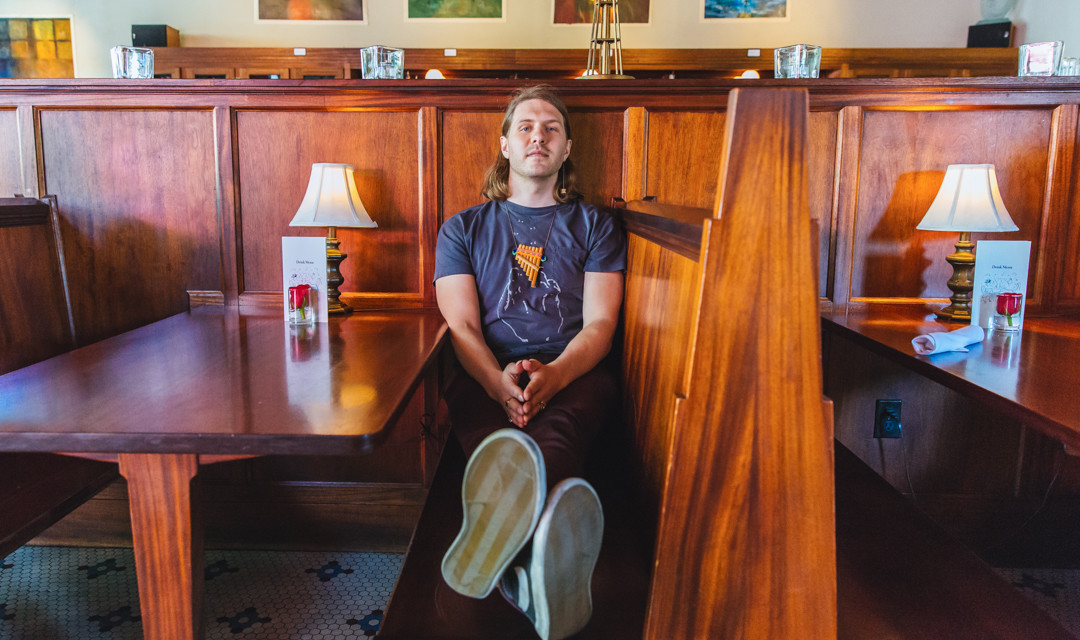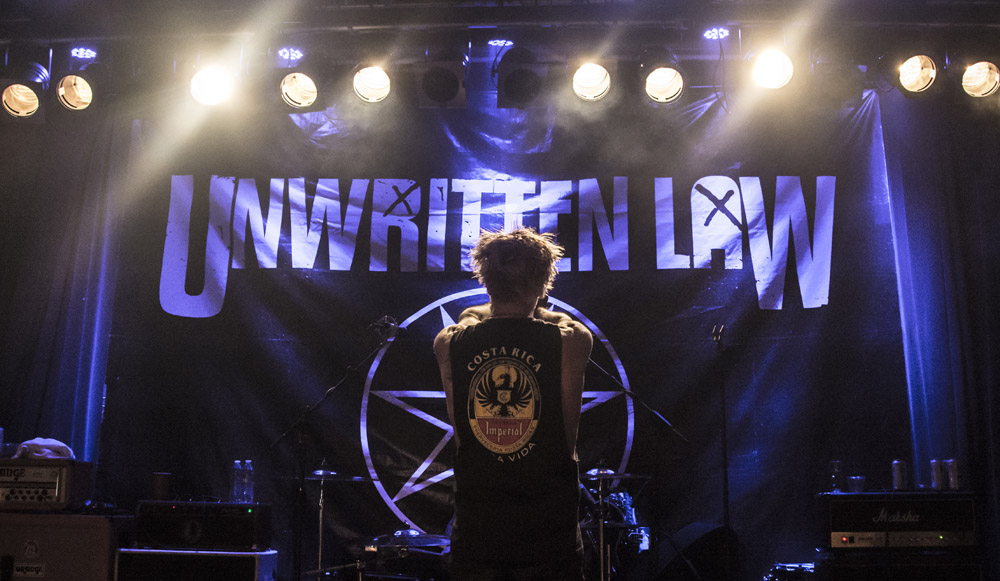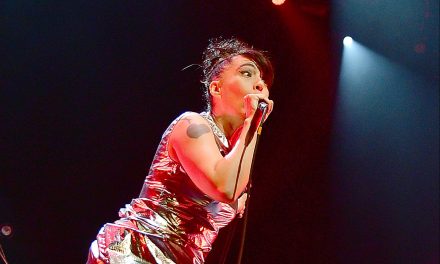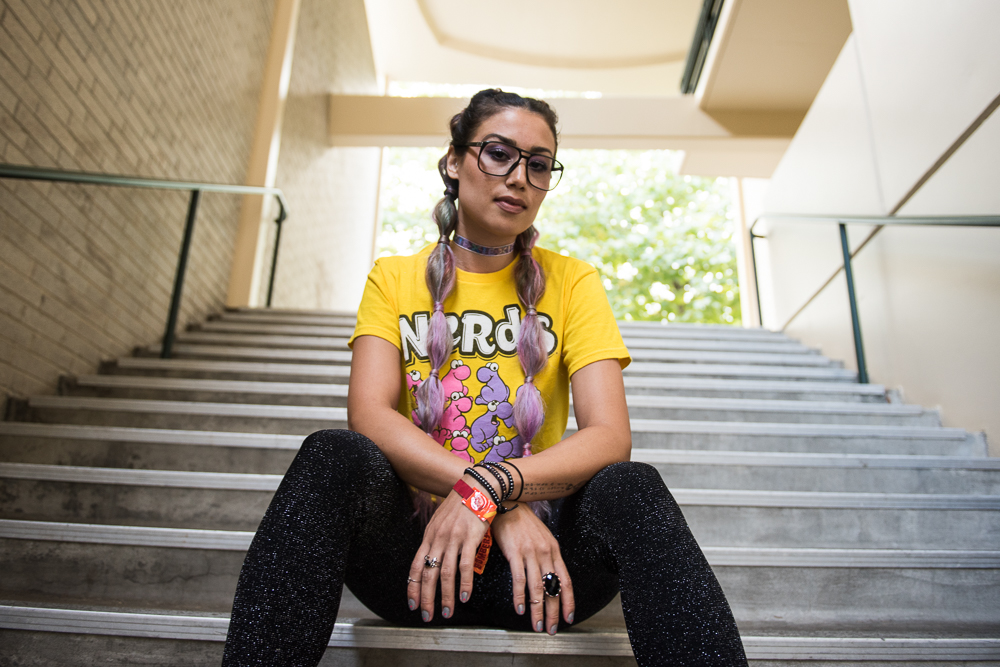Interview: Daniel Blue
Virgina Inn, Seattle, WA
05.01.16
He’s been called a visionary, a creative force, a rock star, and plenty of other arms-length words that might be rather intimidating. And he is probably all of those things, but when we meet singer/songwriter Daniel Blue and his wife Rebecca at the surprisingly empty Virginia Inn in downtown Seattle on a shockingly sunny Sunday, it’s actually his unassuming, humble nature that comes across most notably.
The last time we spoke with Blue, shortly after the release of the last Motopony record, let’s just say he was a different person. To the point where we almost didn’t recognize him. A year ago, he came off a bit snarky and obtuse, but Blue – likely thanks to his nearing-6-month sobriety and relearning how to live – is now astute and thoughtful, while maintaining a subtly irreverent sense of humor.
While we snacked on tea, French fries and charcuterie, Blue chatted about where things are at: his head, the music, and the state of the industry.
SMN: We talked to you about a year ago, after Motopony’s Welcome You came out. How are things going? What’s New?
Daniel Blue: Good. Yeah. In between then and now we toured the West Coast. We went on a couple of short runs in the fall, played some bigger shows locally, and then, what happened? In October I had an opportunity to record a solo record at Abbey Road. I started working on that pretty hard late fall. I went there in December and I did a little solo tour down the coast to get ready for that. Then I got back and Motopony played a show at the Tractor on December 4th. Then I flew out on December 8th and I was in London for 18 days. I came home for Christmas. Then Motopony did Sundance Film Festival. We played on the ASCAP (The American Society of Composers, Authors and Publishers) stage. That was really fun.
SMN: That’s an honor, to be playing ASCAP.
DB: Yeah. It’s huge, in that a lot of the current ways that bands are making ends meet are through film and television. To be able to play to directors and music and film inter-crossing is huge. It’s huge. We got to play two nights back to back. Both of those shows were really, really good.
SMN: Motopony have been playing an occasional show around here. You’re also a playing a lot of solo shows. How is that going?
DB: It’s going well. I get to open for Lou Doillon on May 10th. That’s at The Triple Door, in Seattle. That’s going to be really fun. And then I’m going to follow her to San Francisco and play there. And then I’m going back to London in July, to sort of promote the record over there and tie up some loose ends with the producer, Rob Cass, and kind of get the album settled. Then we’ll play a few shows over there and then head back. There might be one other thing scheduled for Daniel Blue this summer.
Motopony is… I think we’re at a place where if the label is not picking up the option for the next record, we’re going to let some contracts kind of play out. We’ve gotten a ton of the film stuff we’ve been looking for, but I don’t think we’ll be touring. There are no plans to continue touring or to start writing another record straight away. I think everyone wants to sort of focus on solo stuff and family stuff.
SMN: So it was a group decision to let lie? There was no official band breakup or anything?
DB: Yes. We’ll see what happens. I don’t think so.
SMN: How did the Abbey Road opportunity come about?
DB: When Motopony was there in 2014, I guess it would be, late 2014, we were on our way to India. We stopped in London and played a show. Someone introduced us to someone else and we did five songs at Abbey Road called Naked at the Abbey. The producer, Rob Cass, he and I just got along really well and emailed back and forth for a little while, and then he was like, “Look, I would love to help you make a record, solo if you want to do that.” So we figured out how to make it happen.
SMN: Nice. That’s pretty exciting. So you did a little tour down the West Coast to prepare, and I believe there was a tent involved?
DB: There was. Okay, so there was a lot involved, that was a great idea.
SMN: In theory?
DB: Well there were a lot of things that happened too. Instead of taking my own van I drove somebody’s little Toyota Previa down the coast, so I had to lose a little weight. The Previa broke down and so I had to transfer into a little Acura, and I had to lose a lot of weight. I just sort of left things scattered up and down the coast that I’m going to try and go pick up. I’m actually renting a car on the way back from the San Francisco show so I can gather some loose ends. Some people have mailed me some things. I got a couple of giant packages.
SMN: That’s fun, at least.
DB: It was a good tour, but it was a little bit of a mess. It fell apart midway. I was in a spin myself, I was like, I think I need to get sober. I quit smoking cigarettes, so emotionally there was a lot of discombobulation going on too.
SMN: So a questionable tour and then straight into recording. Were you ready with a bunch of material already?
DB: Starting in the summer of last year I cataloged all of the songs that I had written that Motopony didn’t want to use, and there were 56. I narrowed those down to 28 and did demos in New York in between my tour and something else, in the fall. I had 26 demos that I then emailed to Cass in London, and said, “Here’s, I think, the cream.” We narrowed them down to 14 that I recorded. It was a process of elimination.
Also I was working on material a lot on that tour. That’s really what that tour was about. A) Can I play sober, and B) Do these songs work? Are they ready to take to the studio? I felt like until I had played them in front of people… gauged the reaction, but also, what’s the experience of actually playing this music to human beings, before I share it to the tape recorder.
SMN: So how was the recording with Cass?
DB: It was good. It was very different being back in London. It was nearly the same time of year but I wasn’t with the band, and they are a big safety net for me, a big blankie. They fill in a lot of my gaps, and I didn’t have any of my coping mechanisms, which was strange.
SMN: So, barebones, in London.
DB: I worked like a dog. I was waking up and going to work. I sat in that studio and I concentrated. It was humbling. A lot of days I felt really scattered. I didn’t feel super confident, but I knew that the work was good. I had tested it, so I was just trying to trust the process. But I didn’t go in there like a boss telling everybody what to play and how to do it, and the record kind of evolved on us on its own, out of that. It really took a course that maybe it wouldn’t have, had I been sort of bullheaded.
SMN: And you guys brought in some other musicians to play on the record?
DB: There was a guy who I had imported from New York, a British kid who was going to be there for Christmas with his family anyway. His name is Chris Hills. He and I worked together on some of the demos in New York, so he was familiar with the material. He’s a really solid studio guitar player. And then Rob is an accomplished musician on many fronts, he can sing, he can play drums, plays guitar, plays bass as well. Then his assistant Pearse MacIntyre, he just blew my mind. I love the style, I just really enjoyed the way he worked. I think we all really just had a “let’s have fun” attitude, nobody really tried to take charge, and between the four of us we really sort of sculpted it. And then I had some friends in London come and play here and there on the record as well.
SMN: Sounds like it was hard working but laid back.
DB: Yeah. I didn’t do anything else while I was in London. I think we caught a movie one night, but I didn’t do anything else.
SMN: How are you feeling about the material now? Confident with it?
DB: Good, yeah. I think it’s really exciting. It’s sort of darker than I thought it was going to be. Typically, my solo stuff has been kind of dream-pop, hippie, soft. This stuff ended up hitting a little harder. I thought without the band I might not go that way, but some of it is just downright… has a swampy, darker, how would you describe it? [He looks to Rebecca] It’s a funny thing to describe music. It’s adult. It doesn’t have that sort of teen, soft, sweet thing going on. Some of the songs do, but I would say that a majority of them are a little more aggressive, without being angry.
SMN: Yeah. Angry is not necessarily where you want to aim, but it happens. Have you played or met Lou Doillon before? Or did this just materialize?
DB: No. It’s strange. We have some friends who moved to Paris three or four years ago. They eat brunch at a café that has this real artsy, familial vibe. Apparently Lou Doillon eats there as well. That has nothing to do with how I got the show. I don’t know.
SMN: Well, it’s a cool pairing.
DB: I think it is too. Ultimately that just comes from that my booking agent is a badass, he heard the recordings from Abbey Road and was like, “This is awesome, I love what you’re doing, let’s look for opportunities for you.” So I ended up booking up a couple shows on her tour. It’s great. It’s a perfect fit.
SMN: Without us having heard the new material yet, what’s your favorite song out of the batch?
DB: I think my favorite to play is probably a song called “Western Doom.” My favorite to listen to right now? I think “Valley of Witches” definitely evolved into something pretty radical. I mean, if you haven’t heard any of these…
SMN: I haven’t heard them yet.
DB: I don’t know how you would have. If you had…
SMN: You would be like, wait a minute, how did that get out?
DB: Like who’s leaking…
SMN: Are you planning to play new material for the solo show at The Triple Door?
DB: Some of it. I know that right now I’m riding on Motopony’s coattails. That’s why I’m out in the world. So, I play a lot of the songs that I wrote and know really well, and that I would play for Motopony anyway. So there’s that material in my set, there’s also yeah, some newer songs. I haven’t really decided what I’m going to play yet. I just played a house show and I had an hour and a half to two hours, and I just went crazy, and still didn’t play five or six songs on my set list. Clearly I get to just go…
SMN: Is it kind of freeing to do whatever you want to do up there? When it’s just you?
DB: Yeah. There’s a lot of songs that I can’t play without the band, they just don’t come off, because they were written with six other people in the room. And I’m just not that talented. I don’t know how to play like a E minor, 7 diminished, flat 5. Those are names of chords; I don’t even know what they are. Motopony was curated carefully with really, really talented guys.
SMN: And it’s a very full sound. There’s a lot going on, lots of layers, so I can imagine it would be hard to pick out some of that.
DB: With a 3-string guitar?
SMN: Yeah, when you’re one person. I’ve noticed a lot of musicians are doing these house shows though. Where you just kind of go and play wherever people will have you, as opposed to an organized tour.
DB: I think there’s probably a happy medium. And mine was, go and play wherever people will have me, and I suffered. You need a guarantee that you’re gonna have gas to get to the next stop. Or if your car blows up that you have a back up. That you can afford to rent something. I got really lucky and someone just lent me their vehicle, that for some reason they were parking in San Jose. In permanent parking in San Jose. I was like “oh, okay,” I blew up in exactly the right spot.
SMN: Sounds like it was an adventure though
DB: It was a lot. It was a lot of things. I enjoyed it though. Rebecca says I’m scrappy.
SMN: That’s a good quality to have.
DB: I like knowing if stuff runs out or the shit hits the fan, I have my wits about me. I’m not too terribly dependent on other things, but without Facebook and the internet I would have been screwed, to be honest.
SMN: Social media saves the day. Then you’re going to go back – you said this summer – to London and do some finishing up on the solo work, and then possibly there’s an album coming?
DB: It’s hard to promise things like that. Yes. There is a solo album that is nearly done. When it is done and all the parties involved are satisfied with the “how we all get paid” contract, then we’ll all move forward in releasing this.
SMN: That’s exciting. I’m excited to hear it.
DB: Me too. I’m excited for you to hear it.
SMN: Have you watched the TV spots where Motopony is featured? Does that actually interest you?
DB: It’s not that it doesn’t interest me, [Rebecca chimes in that they don’t have cable] it’s a lack of access, but it’s also, I don’t know. I think there needs to be a little bit of detachment from that face of the band. And I don’t understand why I want that, but it’s a gap. It’s sort of like, I don’t want to know.
I don’t want to be writing and thinking, oh this is the scene they could put that in… I kind of need that out of my mind a little bit. Because ultimately it is the only way that we’ve been able to really sustain ourselves for a long time, and so it can’t pull that much weight. It just needs to be, like, hey, this song, if they like it, awesome. But everyone in the industry now, when they hear something, they don’t think, “Oh this would be good for KCRW or this would be good for college radio, or this would sit really well into a touring rig.” They think, “I see this as the opener for this show,” or “this would make a great baby diaper commercial.” We’re so focused on that.
That’s ultimately just the reality of sustaining yourself. It requires money, and so everybody’s adjusting to the new. It has less and less to do with the people who listen to the music, and more and more to do with people who will buy it. Because the listeners aren’t buying it, ultimately. So, as a consumer, you’re sort of robbing yourself of a little bit of the vote.
For more on Daniel Blue’s music, visit his site and find tickets for upcoming shows here.
Interview by Stephanie Dore
Photos by Sunny Martini

